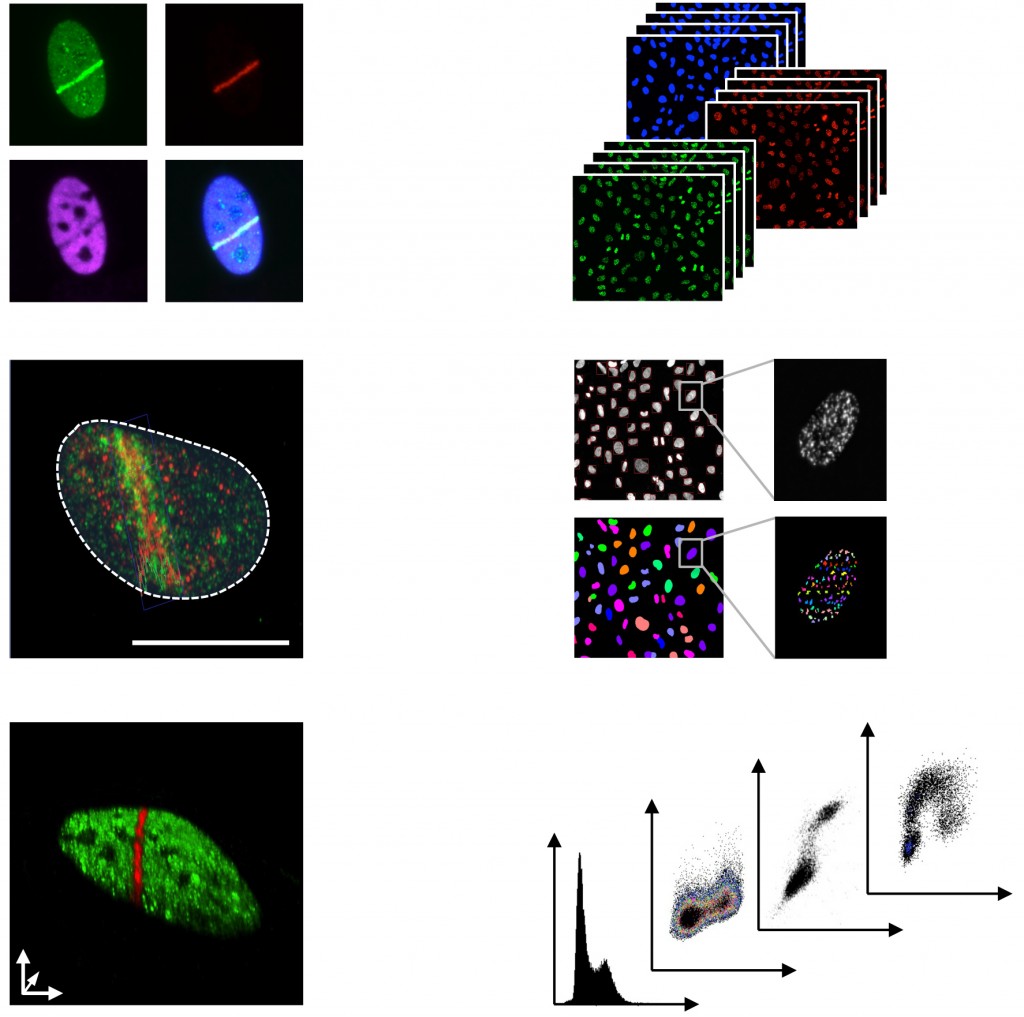Genome instability in cancer and aging

The integrity of the genetic material in our cells is in constant danger: not only can reactive cell metabolites and various exogenous genotoxic agents cause damage to the genome, also the physiological DNA transactions associated with DNA replication or transcription can be a serious threat for genome integrity if they are not well coordinated or insufficiently controlled. Sophisticated molecular mechanisms have thus evolved to prevent the excessive accumulation of DNA damage and thereby guard cells against genome instability. These mechanisms are often undermined in human cancers, allowing cancer cells to accumulate mutations at significantly increased rates. While such defects in genome maintenance mechanisms can contribute to and even drive cancer development, they can also provide a therapeutic opportunity if we can identify and understand the cancer-specific vulnerabilities they entail.
Our research interest is to understand how human cells deal with genotoxic stress assaults and how they coordinate genome maintenance mechanisms with other vital cellular functions. To this end we combine state-of-the-art molecular biology and biochemistry with powerful advanced cell imaging technologies, in particular employing single cell chromatin perturbations, high resolution live cell imaging, automated quantitative microscopy and software-assisted image analysis. By targeted ablation of specific gene functions and high content analyses of DNA damage and repair markers we aim at identifying concealed regulators of the cellular response network to genotoxic stress and at understanding their role for genome maintenance.
Currently, our main research areas are:

